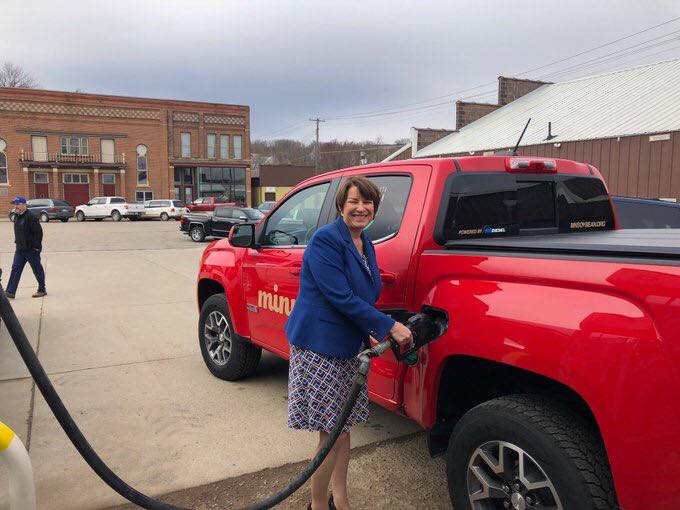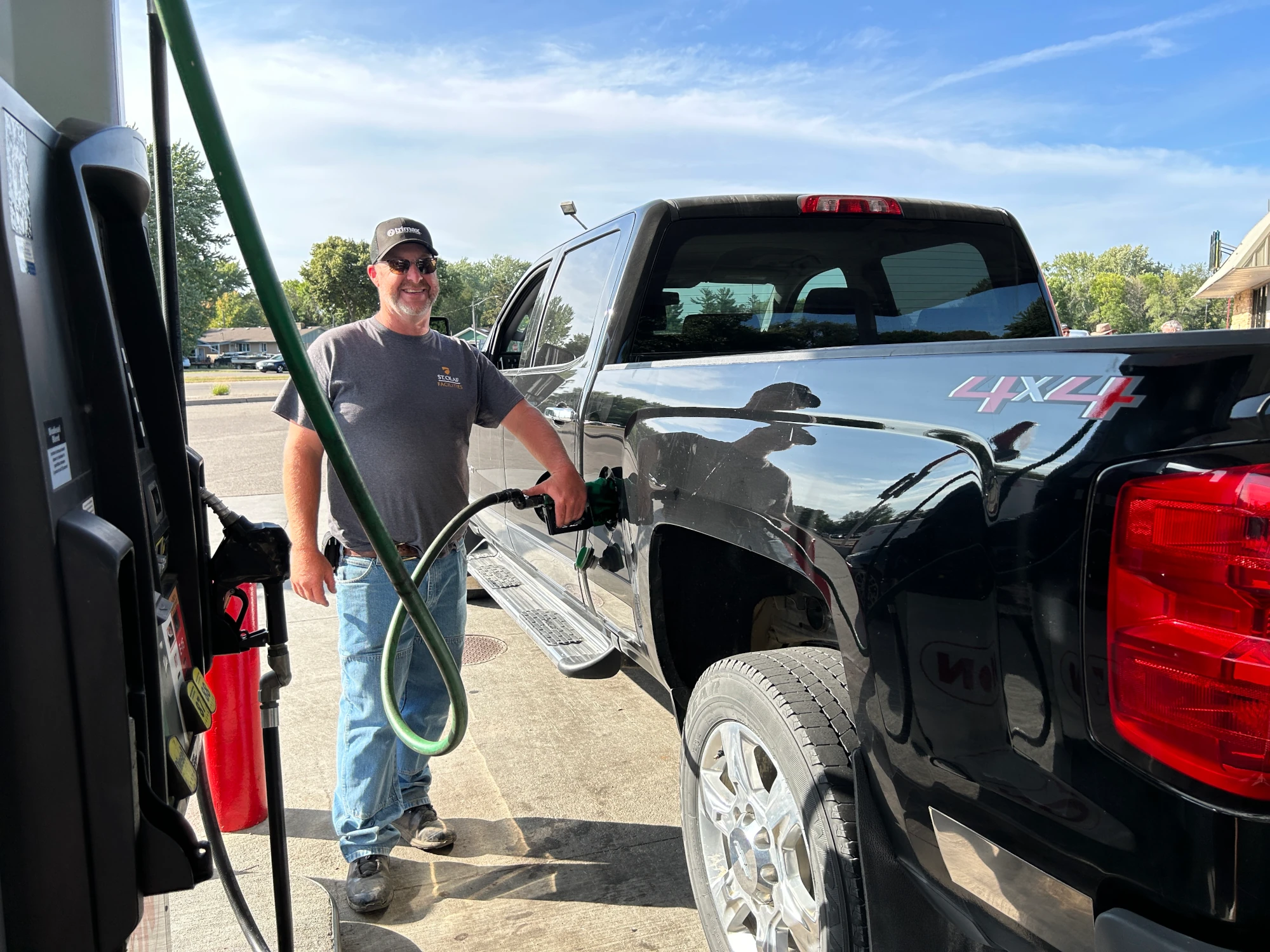Soybeans as Fuel
Biodiesel is a renewable, cleaner-burning diesel replacement that meets ASTM D6751 specifications and can be used in existing diesel engines without modification. This fuel is made from an increasingly diverse mix of resources, including soybean oil, through a chemical process which separates glycerol from fat or plant oil and replaces it with methanol. From its inception over the last 30 years, biodiesel has proven itself as a winner for our state.
Minnesota Blending Requirement
Minnesota Blending Requirement
A biodiesel trailblazer, Minnesota was the first state to pass a biodiesel mandate in 2002, which was implemented in 2005. Today, we’re continuing to lead the way: Since 2018, Minnesota has required B20, or 20 percent biodiesel, sold from April 15-Sept. 30; a B10 blend from April 1-14; and B5 between Oct. 1-March 31.
Learn how we got here through our biodiesel roadmap.


2004
First biodiesel plant opens with capacity of 3M gallons
2005
MN opens two more biodiesel plants and becomes first state in the nation to require (B2) 2% blend of biodiesel
2007
Gov. Tim Pawlenty announces renewable plan to grow biodiesel to 20% blends
2009
MN becomes first state in the nation to require (B5) 5% blend of biodiesel
2014
MN becomes first state in the nation to require (B10) 10% blend of biodiesel
2018
MN becomes first state in the nation to require (B20) 20% blend of biodiesel

Environmental Impact
As a non-toxic and biodegradable fuel, biodiesel is recognized by the EPA as an advanced biofuel for its ability to reduce greenhouse gas emissions by more than 50 percent. In Minnesota, biodiesel use has an effect equal to removing the emissions from nearly a quarter-million vehicles from the roads each year. To sum it up, biodiesel is cleaner, better, now.
Economic Impact
Every year, Minnesota produces roughly 85 million gallons of biodiesel, ranking eighth among U.S. states in biodiesel production and supporting over 5,000 full-time equivalent jobs. Each one million gallons of biodiesel produced contributes $22.8 million in statewide economic output and supports 73 jobs. Overall, the biodiesel industry has a $1.7 billion economic impact on Minnesota GDP, including $676 million in farm-level impact. For soybean producers, biodiesel is estimated to add more than $1 to every bushel of soybeans and increase demand by 13 percent.

Public Health Impact
Clean Fuels Alliance America (Clean Fuels) funded a health benefits study, which showed that in Minneapolis/St. Paul, the expected baseline cancer risk associated with diesel fuel usage is between six and 585 excess cancer cases per million residents. However, if a full transition from diesel to biomass-based diesel is adopted, the baseline cancer risk would be reduced to between three and 192 excess cancer cases per million residents.
The following annual benefits were also identified.


